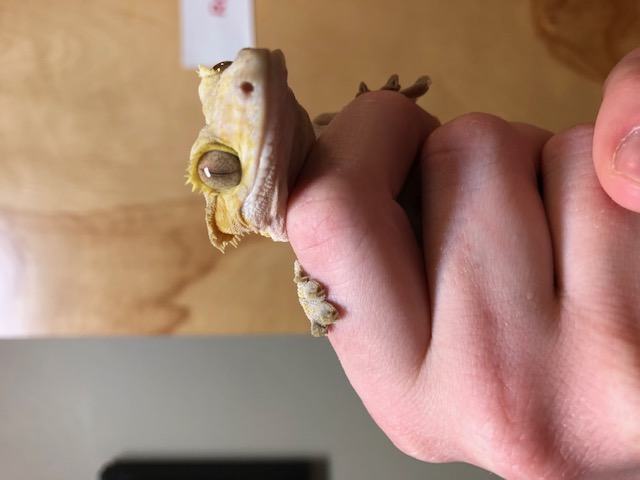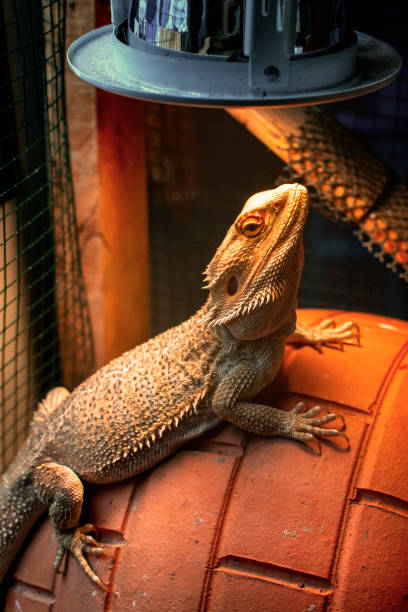|
Your reptile veterinarian in Nashville knows that people with limited living space may find that reptiles such as lizards or bearded dragons fit perfectly into their lifestyles. Before deciding on a reptile, learn as much as possible about them and their health needs. Poisonous snakes and certain reptiles should never be kept as pets due to safety and legality issues. Ask your Antioch, Tennessee exotic veterinarian about the suitability of a particular animal before you make your decision. There are many things to consider before committing to a reptile as a pet. If you’re new to owning a lizard, there are a select few that are good for beginners.
- Most species have a complex husbandry (heating, lighting, humidity, etc.) and diet, which can be tricky at times.
- Some are fragile and difficult to care for, meanwhile others get very big and potentially aggressive.
- On the other hand, some species are easy to tame and are more docile.

Legality
Many areas have enforced laws in regards to owning reptiles. Some are broad and some are quite particular; in many places any reptiles that are considered dangerous (venomous snakes, alligators, etc.) are illegal but some places are even more restrictive (for example, in some states all constricting snakes including ball pythons are illegal).
Salmonella Risks
Your exotic pet vet in Nashville wants all reptile owners need to be aware of Salmonella infections. With proper management, the risks are minimal and should not defer people away from owning reptiles. Still, owners need to know about the risks, as the CDC has recommended certain risk groups be careful about contact with reptiles and amphibians.

The Importance of Light and Heat
Most of the problems your Nashville exotic vet sees with reptiles are typically related to not providing the correct environmental conditions, mainly light and heat. The required equipment to provide the correct heat and light to domesticated reptiles can be costly, but it is absolutely essential to keep your pet reptiles healthy. It is crucial to know what conditions your reptile needs and to never cut corners, as they can get very sick in the wrong environments.
*Leopard geckos
Did you know? Well your exotic reptile vet in Antioch, Tennessee knew that Leopard geckos could live over 20 years of age!
- The scientific name is Eublepharis Macularius. This species can grow to be 8-10 inches long.
- The common coloring is white and yellow with black spots (hatchlings start out striped, and gradually grow spots). There are several colors and patterns (e.g. jungle, striped).
- These creatures are typically docile and easy to tame. They are nocturnal and ground-dwelling.
- Leopard geckos cannot climb very well, as they do not have toe pads. But unlike other geckos, they do have eyelids!
- Consider a 15 to 20 gallon tank if you have 2 to 3 geckos. Keep in mind you cannot keep more than 1 male in the tank. If you house males with females, expect offspring.
- Half logs provide hiding and climbing space, as can commercial reptile caves and simple cardboard boxes. A damp hide box can help with shedding (a plastic container with a hole in the lid, with moist soil or moss inside).
|
|
.webp)







